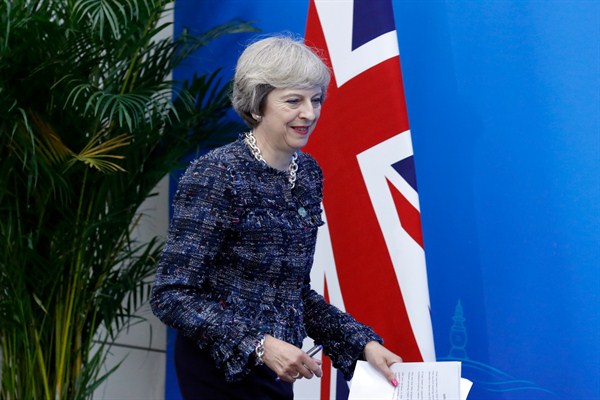Last week, U.K. Prime Minister Theresa May reiterated that “Brexit means Brexit,” her formula for insisting that she will respect the outcome of the referendum in favor of Britain’s withdrawal from the European Union. Her comments came as the Cabinet met to discuss Brexit strategy and the need to find a “unique” deal for the U.K. as it negotiates its EU exit, a proposition that is proving to be easier said than done.
The outcome of the June referendum, in which 52 percent of Britons voted in favor of leaving the EU, prompted fears that the U.K.’s economy would collapse, as well as concerns for the EU’s future. But now that the initial shock has worn off, it seems that many people’s original fears were overblown. The British economy, which took a significant hit in the immediate aftermath of the referendum, has recovered better than many economists expected, as highlighted by recent consumer spending reports.
Susi Dennison, a senior policy fellow at the European Council on Foreign Relations, points out that corrective action was taken to soften the economic blow. For example, the Bank of England lowered interest rates in order to avoid even greater Brexit fallout. But even though the economic turmoil from the “yes” vote hasn’t been as severe as expected, May warned over the weekend that “there will be difficult times ahead.”

